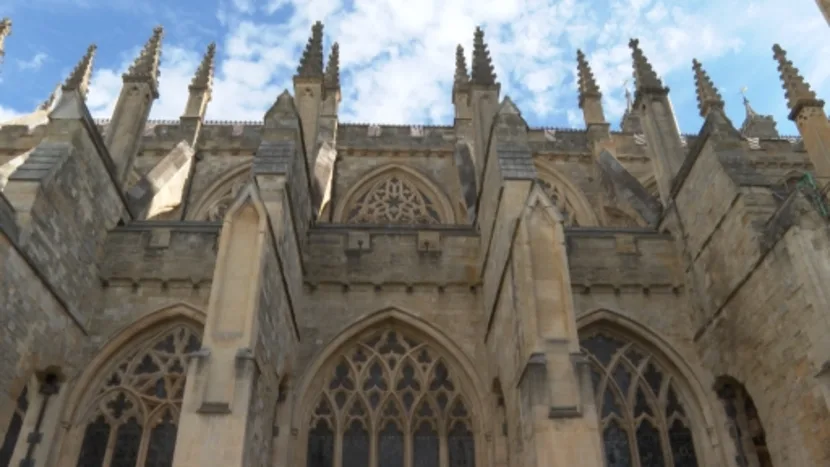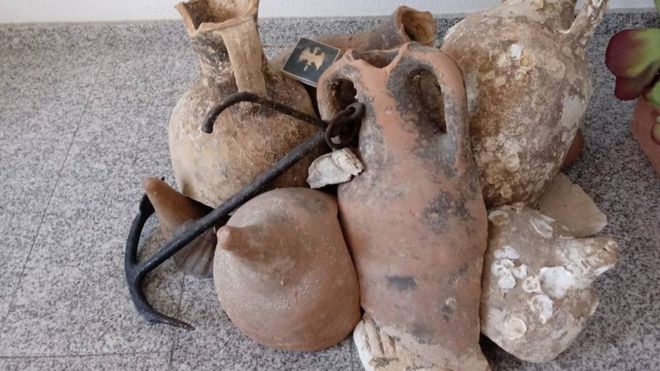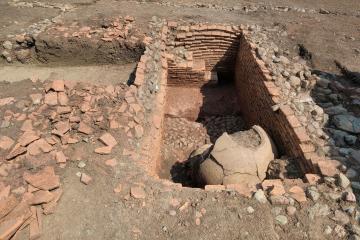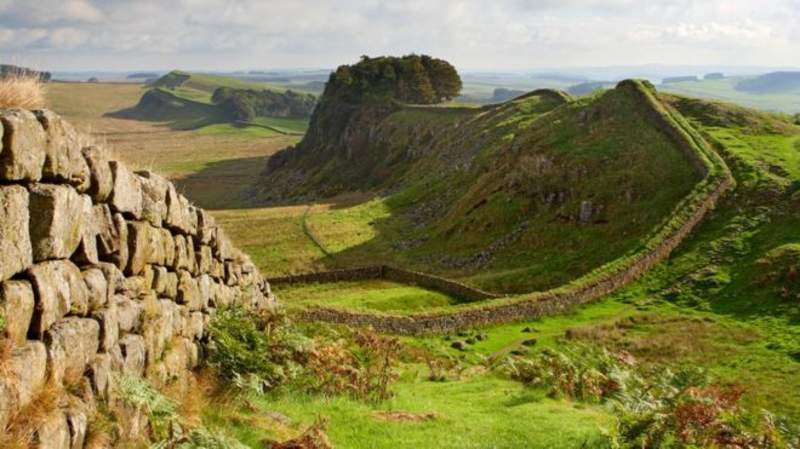The Roman Archaeology Blog is concerned with news reports featuring Roman period archaeology. If you wish to see news reports for general European archaeology, please go to The Archaeology of Europe Weblog.
Monday, July 27, 2020
Pompeii's most recent finds reveal new clues to city's destruction
Since its discovery several centuries ago, few archaeological sites have fascinated the world as has the ancient Roman city of Pompeii. After the first major excavations in more than 50 years, Pompeii is revealing a surprising abundance of buried treasures. The new finds are coming from intensive work in a small sector known as Region V that has nevertheless yielded giant insights into the final days of the doomed city.
Along with the complete excavation of two houses—the House of the Garden and the House of Orion—the dig has yielded frescoes, murals, and mosaics of mythological figures in gorgeous colors, skeletons with stories still to be unraveled, coins, amulets, and show horses in the stable of a wealthy landowner.
The new finds are also sparking debate about Pompeii’s tragic story. Just before Vesuvius erupted in A.D. 79 and buried the city under a mantle of ash and rock, a local worker scrawled an inscription on a wall. Along with a joke (roughly translated as “he ate too much”), he wrote the date: October 17. The discovery of this inscription may confirm the view that the eruption took place in October, and not August, as some scholars maintain.
Read the rest of this article...
Sunday, July 26, 2020
Archaelogical dig starts at Exeter Cathedral
An archaeological dig which has just started at Exeter Cathedral could uncover artefacts as far back as the Romans.
The first stone has been lifted in a six-week investigative dig where a new cloister gallery will ultimately be built.
Archaeologists want to find out what is below the paving slabs and grass which covers the area just outside the cathedral's chapter house, which has never been examined before.
The dig is expected to provide crucial information about the layout of the medieval cloister - which was torn down in 1657 - and the state of its foundations which, if still serviceable, will be reused for the new building.
Read the rest of this article...
Roman jars found in Spanish seafood shop
Authorities conducting a routine inspection of a frozen seafood shop in Spain were surprised to find ancient artefacts decorating the premises.
The owner's son found the objects while fishing, according to local media.
Thirteen jars (amphoras) are believed to date back to the 1st Century AD, while an 18th Century anchor and a limestone plaque were also found.
Both the owner of the business in Alicante and his son are now being investigated.
"The amphoras could come from the looting of shipwrecks," which would be protected as objects of underwater archaeology, a statement by the Civil Guard said on Wednesday.
The artefacts were moved to the Museum of the Sea in Santa Pola, where they underwent preliminary dating.
Read the rest of this article...
UN NOUVEL ÉTABLISSEMENT ANTIQUE DÉCOUVERT DANS LA PLAINE D'ALÉRIA (HAUTE-CORSE)
A Pietroso, dans la plaine d’Aléria au pied du Massif du Monte Incudine, les archéologues de l'Inrap ont mis au jour un vaste établissement rural de l'époque romaine, composé d'un étonnant ensemble de structures hydrauliques.
Une équipe d’archéologues de l’Inrap met actuellement au jour un établissement rural du IIIe siècle de notre ère, sur la commune de Pietroso, au pied du Massif du Monte Incudine à l’extrême ouest de la plaine d’Aleria. Sur prescription de l’État (DRAC de Corse), cette fouille, préalable à la construction d’un habitat résidentiel, est prise en charge à 100% par l’État, par le biais du fonds national pour l’archéologie préventive (Fnap). Elle apporte aujourd’hui d’intéressantes informations sur l’occupation antique en Corse.
Read the rest of this article...
Tuesday, July 21, 2020
Hadrian's Wall warning after man arrested for theft
Newcastle University
Historic England has been working with police after a number of thefts near the Military Road, and 44-year-old man was arrested on suspicion of theft last week.
Don O'Meara from Historic England says people can do untold harm to unique and historic finds.
It's not that one coin or that one brooch, often to get that prestige item they can be digging holes all over protected monuments, they can be disturbing artefacts, throwing away artefacts that they think have no value, and that's the real lost material."
Dean O'Meara
Read the rest of this article...
Tuesday, July 7, 2020
New discoveries at the Underwater Park of Baia
Credit: Parco Archeologico Campi Flegrei
During the research activities that the Archaeological Park of the Phlegrean Fields is carrying out in view of the opening of new routes, a marble table support (trapezoforo) decorated with a feline head was recovered from the seabed this morning.
The operation was carried out by technicians from the Campi Flegrei Archaeological Park supported by the Harbour Master's Office - Locamare di Baia and Naumacos Underwater Archaeology.
Immediately after the recovery operations the find was transported to the laboratories of the Bay Castle for the first preservation measures.
Read the rest of this article...
Subscribe to:
Comments (Atom)





